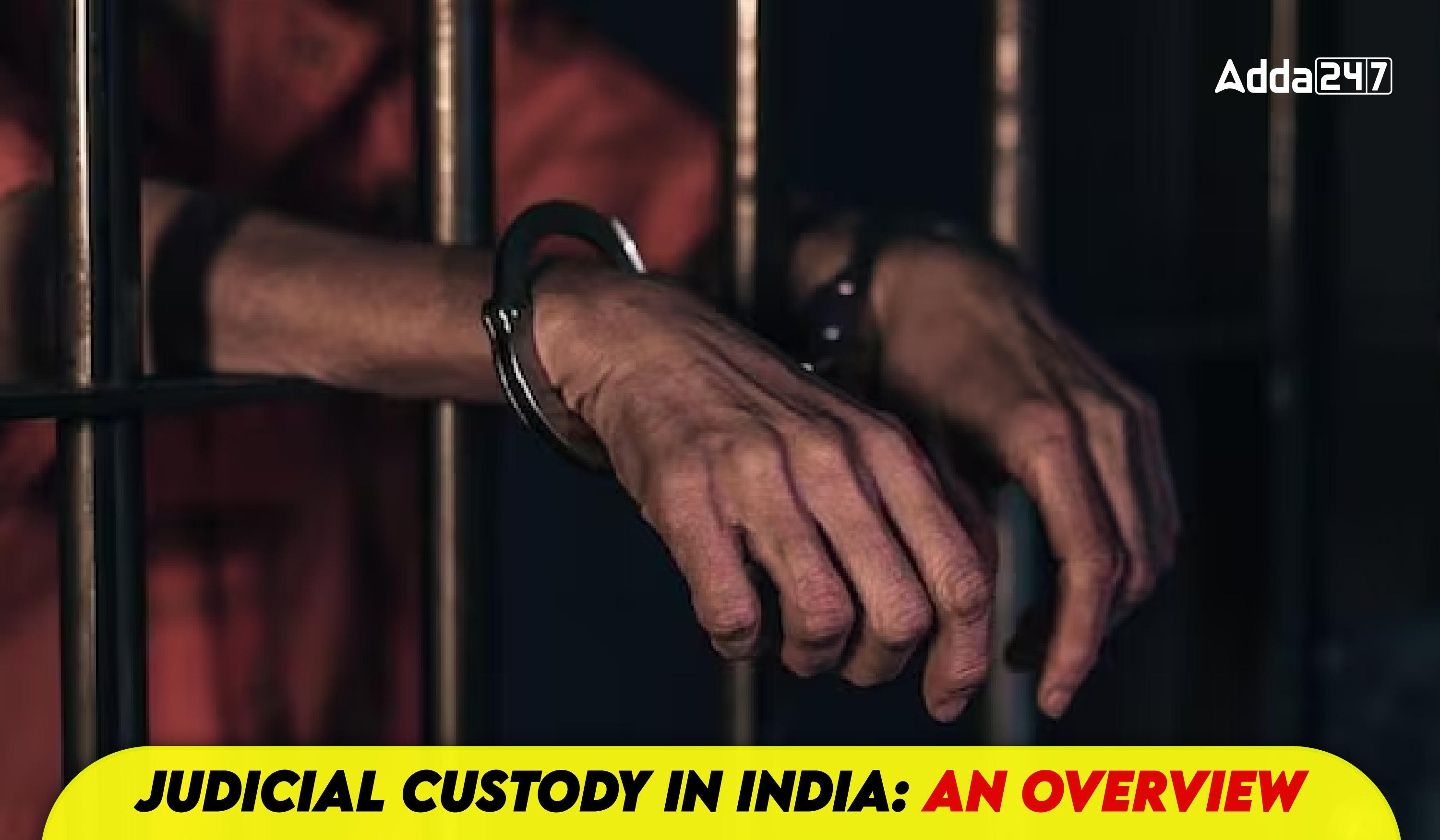Table of Contents
Judicial custody is a crucial aspect of the criminal justice system in India, designed to balance the need for investigation and the protection of individual rights. The term ‘custody’ is derived from the Latin word ‘custodia’ or ‘custos,’ meaning ‘guardian.’ In legal terms, it refers to the immediate charge and control over an individual, exercised by an authority. Judicial custody indicates that an accused is under the supervision of the judiciary, unlike police custody, where the police have physical custody of the accused. This article explores the concept, legal framework, and significant case laws related to judicial custody in India.
Judicial Custody: Meaning
Judicial custody means that the accused is in the custody of a Judicial Magistrate and is usually lodged in a Central or State prison. The police can interrogate the accused during judicial custody only after obtaining permission from the Court. Judicial custody serves as a preventive measure to ensure the accused does not tamper with evidence or influence witnesses.
Judicial Custody: Legal Framework
The provisions related to custody in criminal offenses are governed by the Code of Criminal Procedure (CrPC), 1973. Section 167 of the CrPC lays down detailed instructions regarding judicial custody. When a person is arrested and the investigation cannot be completed within 24 hours, the individual must be produced before the nearest Magistrate. The Magistrate may authorize police custody for up to 15 days, after which the accused may be remanded to judicial custody if further detention is deemed necessary.
Judicial Custody: Conditions and Duration
The maximum duration of judicial custody is 90 days for offenses punishable with death, life imprisonment, or imprisonment of at least ten years. For other offenses, the period is 60 days. If the charge sheet is not filed within this period, the Court usually grants bail to the accused.
Judicial Custody and Police Custody: Differences
- Police Custody: The accused is lodged in the lock-up of the concerned police station. The police have physical custody and can interrogate the accused without Court permission.
- Judicial Custody: The accused is in the custody of the Magistrate and is lodged in a Central or State prison. The police require Court permission to interrogate the accused.
Case Laws for Judicial Custody
- State v. Gali Chalapathi Rao And Ors. (1974)
The Andhra Pradesh High Court held that in judicial custody, the police could only interrogate the accused in jail after obtaining the Court’s permission. This case highlighted the strict supervision exercised by the judiciary over the accused in judicial custody.
- Gian Singh And Ors. v. State (Delhi Administration) (1980)
The Delhi High Court ruled that mere interrogation by police during judicial custody does not change the nature of custody. It also held that once the accused is remanded to judicial custody, they cannot be sent back to police custody for the same investigation.
- Central Bureau of Investigation v. Anupam J. Kulkarni (1992)
The Supreme Court held that after the expiry of the initial 15 days of police custody, any further remand can only be in judicial custody. This decision clarified the limits of police custody and emphasized the role of judicial custody in protecting individual rights.
- Sanjay Chandra v. CBI (2011)
In this landmark judgment, the Supreme Court reiterated that jail is the exception and bail is the rule. The Court granted bail to the accused in the 2G Spectrum Scam case, highlighting the principles of criminal jurisprudence that emphasize the presumption of innocence and the limited use of detention.
- Gautam Navlakha v. National Investigation Agency (2021)
The Supreme Court extended the meaning of ‘judicial custody’ to include house arrest. The Court observed that judicial custody does not necessarily mean incarceration in a prison and that house arrest can be ordered by the Magistrate under specific circumstances.
Conclusion
Judicial custody plays a vital role in the Indian criminal justice system, ensuring that the accused are detained under the supervision of the judiciary rather than the police. This custody aims to protect the rights of the accused while allowing the investigation to proceed without undue influence. Significant case laws have shaped the understanding and application of judicial custody, reinforcing the principles of fairness and justice. Understanding the nuances of judicial custody helps in appreciating the balance between individual rights and the needs of the criminal justice system.



 TSPSC Group 1 Question Paper 2024, Downl...
TSPSC Group 1 Question Paper 2024, Downl...
 TSPSC Group 1 Answer key 2024 Out, Downl...
TSPSC Group 1 Answer key 2024 Out, Downl...
 UPSC Prelims 2024 Question Paper, Downlo...
UPSC Prelims 2024 Question Paper, Downlo...




